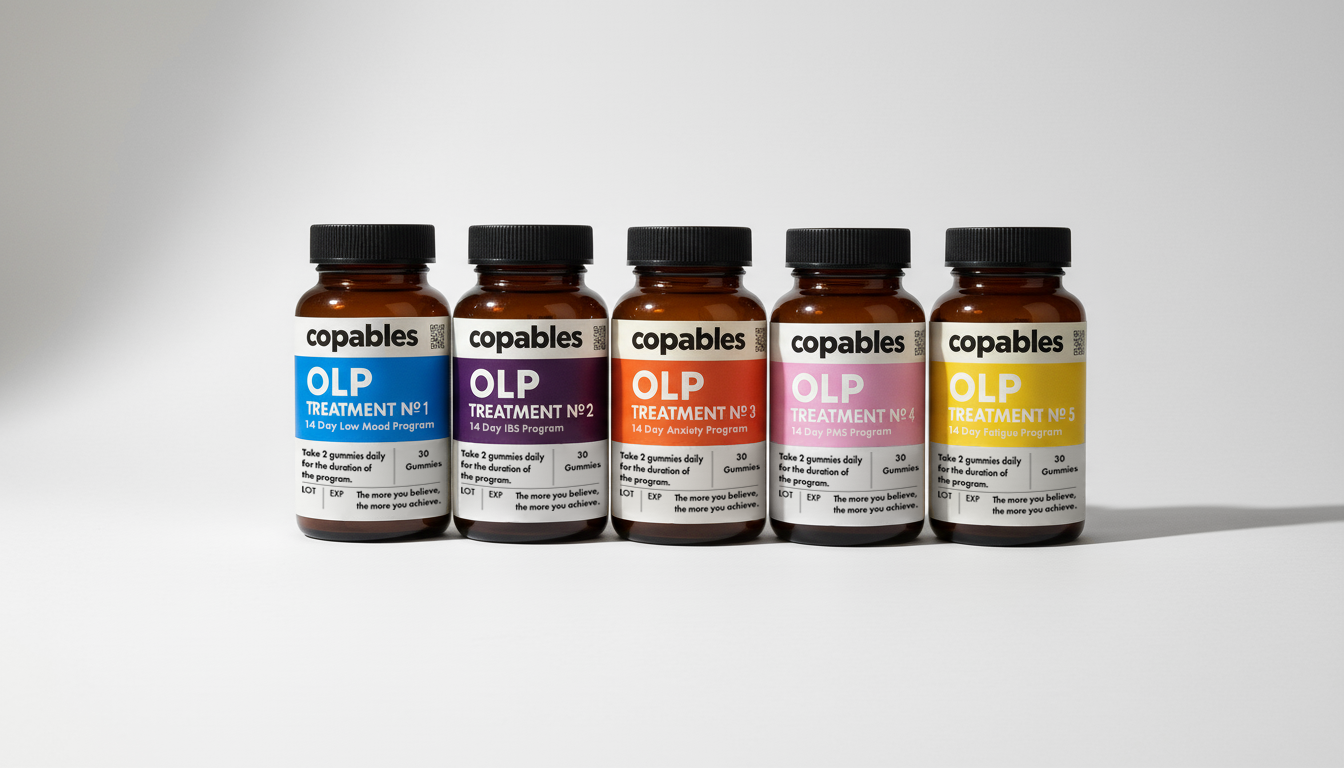In the past decade, researchers have boldly tested placebos in full view of participants and have consistently seen real improvements across a range of conditions.
Here are ten of the most persuasive open-label placebo studies showing that honesty doesn’t undermine healing.
- Irritable Bowel Syndrome (IBS) – 2010, Kaptchuk et al.
Harvard’s Ted Kaptchuk enrolled 262 IBS patients in a two-week trial. Those given open-label placebo capsules reported a 28% greater reduction in symptom severity than a no-treatment group, with 59% declaring “adequate relief” versus 35% in controls.
- Major Depression – 2012, Kirsch et al.
In a pilot at Massachusetts General, twenty adults with major depression took clearly labeled placebo pills alongside an educational rationale. After four weeks, their Hamilton Depression scores fell by 3.25 points—enough to shift many out of moderate-severe depression.
- Premenstrual Syndrome (PMS) – 2018, Schröder et al.
Fifty women suffering moderate PMS symptoms received sugar capsules twice daily for three cycles. Compared to baseline, symptom scores dropped by 45%, and quality-of-life ratings improved by 38%, all while participants knew the pills were inert.
- Chronic Fatigue – 2019, Carvalho et al.
Sixty patients with self-reported fatigue added open-label placebo drops to their daily routine. Within two weeks, they reported 32% less fatigue and a 25% boost in daily energy levels compared to those on wait-list control.
- Generalized Anxiety – 2019, Zhang et al.
Eighty adults with mild to moderate anxiety took honest placebo tablets for four weeks. Anxiety ratings on the GAD-7 scale decreased by 40%, and 65% of participants rated their improvement as “significant.”
- Depression + CBT – 2020, Schienle et al.
Sixty patients in cognitive behavioral therapy for depression supplemented with open-label placebo oil drops before homework saw a 44% greater drop in depression symptoms versus therapy alone, and practiced exercises 23% more often.
- Sadness Induction – 2022, Hahn et al.
Healthy volunteers knowing they inhaled inert nasal spray experienced 50% less increase in sadness during a negative mood induction, an effect corresponding to 0.79 standard deviations, after just a single dose.
- Placebo-Rationalized IBS – 2022, Elsenbruch et al.
Forty IBS patients who received an in-depth explanation of placebo mechanisms alongside inert capsules reported a 35% reduction in abdominal pain and a 30% improvement in stool consistency.
- PMS Combined Trial – 2023, Liu et al.
Seventy women combining dietary guidance with open-label placebo pills over six menstrual cycles experienced a 50% drop in bloating and cramping versus a dietary-advice-only group.
- Depression Neuroimaging – 2025, Miller et al.
Using fMRI, researchers confirmed that patients knowingly taking placebo pills showed decreased activity in brain regions linked to negative emotion and increased connectivity in reward circuits—correlating with a 3-point drop on the Beck Depression Inventory within three weeks.
Why Open-Label Placebos Work
These trials span diverse conditions from gut pain to mood disorders, yet share a common thread: transparent rituals that harness expectation, conditioning, and meaning. By acknowledging that pills are inert but powerful triggers for self-healing, practitioners invite patients to become active participants. Educational explanations, combined with simple dosing routines—whether capsules, drops, or sprays—create new neural pathways that calm stress circuits and strengthen regulatory regions.
A New Model of Care
Rather than framing placebos as deceptive tricks, this body of research establishes them as ethical, side-effect-free tools. For patients open to mind–body connections, educated about placebo science, and ready to engage in their own healing, transparent placebos offer a compelling addition to standard therapies. As healthcare shifts toward collaboration and empowerment, these placebos remind us that belief, hope, and ritual remain among medicine’s most potent remedies.
